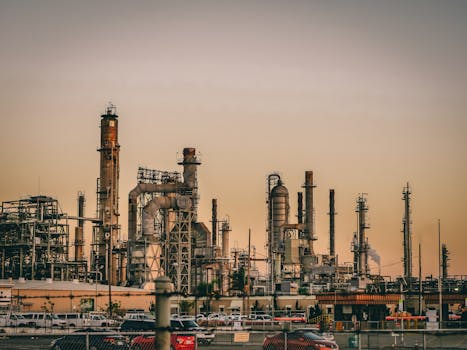
Delhi's Crackdown: Vehicles Facing Impoundment at Fuel Stations from July 1st - What You Need to Know
Delhi is set to implement a stricter enforcement of vehicle pollution norms starting July 1st, 2024. This means significant changes for drivers, with a zero-tolerance policy on vehicles failing to meet emission standards. The Delhi Pollution Control Committee (DPCC) has announced a major crackdown, targeting vehicles with outdated pollution under control (PUC) certificates or those found to be excessively polluting during on-the-spot checks at petrol pumps and CNG stations across the city. This initiative aims to drastically improve air quality in the national capital, notorious for its poor air quality index (AQI) during winter months. This article outlines the new rules, affected vehicles, and what you need to do to avoid having your vehicle impounded.
Which Vehicles Face Impoundment from July 1st?
The primary focus of this crackdown will be on vehicles with:
Expired PUC Certificates: Vehicles whose Pollution Under Control certificates have expired will be immediately targeted. This applies to all types of vehicles, including two-wheelers, cars, and commercial vehicles. Remember, a valid PUC certificate is mandatory for all vehicles plying on Delhi roads.
Vehicles Failing Emission Tests: On-the-spot emission tests will be conducted at fuel stations. Vehicles failing these tests will be impounded, regardless of the validity of their PUC certificate. This signifies a stricter approach to pollution control.
High-Polluting Vehicles: Older vehicles, especially those exceeding the permitted emission limits, will face stricter scrutiny. While the exact age criteria haven't been officially specified, vehicles older than 15 years are likely to face increased attention.
Tampered Emission Control Systems: Vehicles found with tampered emission control systems will face severe penalties, including impoundment. This includes any modification done to bypass emission control mechanisms.
The Impoundment Process: What to Expect
If your vehicle is flagged during a check at a fuel station, expect the following process:
On-the-spot Emission Test: Your vehicle will undergo an emission test using portable equipment.
Verification of PUC Certificate: Officials will verify the authenticity and validity of your PUC certificate.
Impoundment: If your vehicle fails the emission test or has an expired/invalid PUC certificate, it will be impounded.
Fines and Penalties: In addition to impoundment, you will face significant fines as per the Motor Vehicles Act. These fines can be substantial, adding to the cost and inconvenience.
Release Procedure: To get your vehicle back, you will need to obtain a valid PUC certificate, potentially undergo repairs to meet emission standards, and pay the applicable fines. This process can be time-consuming and costly.
Avoid Impoundment: Steps You Can Take
To avoid the inconvenience and expense of having your vehicle impounded, take proactive steps:
Renew Your PUC Certificate: Ensure your PUC certificate is valid and renewed well before the expiry date. Don't wait until the last minute; plan ahead.
Regular Vehicle Maintenance: Regular servicing and maintenance of your vehicle are crucial. This includes checking and replacing worn-out parts that affect emissions. Pay particular attention to your engine, catalytic converter, and other emission control components.
Get Your Vehicle Checked: Before July 1st, get your vehicle checked by a certified mechanic or at an authorized service center to ensure it meets emission standards. This proactive approach is your best bet.
Understand Emission Norms: Familiarize yourself with the emission standards applicable to your vehicle type and age. This knowledge will help you prepare for checks and understand what's required.
Delhi's Fight for Cleaner Air: The Bigger Picture
This initiative is part of Delhi's larger campaign to combat air pollution. The city has been grappling with alarming levels of air pollution, especially during the winter months. The government's stringent measures aim to reduce vehicular emissions, a significant contributor to the poor air quality. This crackdown signals a serious commitment to improving public health and environmental sustainability. While inconvenient for some, these measures are deemed necessary to achieve long-term environmental improvements and protect citizens from harmful air pollution.
Frequently Asked Questions (FAQs)
Q: Where will these checks take place? A: Checks will be conducted at petrol pumps and CNG stations across Delhi.
Q: What if my PUC certificate is slightly expired? A: Even a slightly expired PUC certificate is grounds for impoundment. Renewal is mandatory.
Q: How much will the fines be? A: The fines will vary depending on the violation and are likely to be substantial. Check the official Delhi government website for updated details.
Q: What happens if I am a visitor to Delhi? A: Visitors are still required to comply with the same emission standards and PUC regulations.
Q: Can I appeal an impoundment? A: You may have grounds for appeal if you believe the impoundment was unjustified. Consult with legal counsel to explore your options.
The upcoming crackdown on vehicles in Delhi highlights the city's unwavering commitment to improving air quality. By staying informed and taking necessary precautions, drivers can avoid the hassle and expense associated with impoundment and contribute to a cleaner, healthier Delhi. Remember, having a valid PUC certificate and ensuring your vehicle meets emission standards is not only a legal requirement but also a vital contribution to the environment.




















